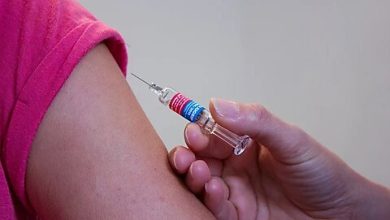Friday Feature: Incubate Debate

Should the Department of Education be shut down? Normally, I’m an easy yes on that question for several reasons: the federal government has no constitutional role in education; the department is essentially just a middleman, siphoning off money to fund its bureaucracy and increasing the red tape states and schools must deal with; there’s no evidence having a federal department has improved education; and there’s plenty of evidence more federal involvement has increased costs—especially in higher education.
But when I faced this question last weekend, I was serving as a judge for the Incubate Debate national championship tournament. And I’d pledged to check my biases at the door. So I listened attentively as the students presented arguments on both sides. Students speaking on the affirmative echoed many of the points I listed above. On the negative, most arguments centered around ensuring students with special needs had the support they needed, protecting civil rights, and helping kids from lower income families through Title 1 funding and college loans.
The league doesn’t shy away from controversial—and very current—topics. Other rounds focused on disbanding DOGE, birthright citizenship for unauthorized immigrants, if the US should leave NATO, and mass deportations. After each round, I weighed their arguments, evidence, logic, and presentation style without regard to my opinion on the issue, and some of the students I completely disagreed with landed near the top of my ballot (including on the Department of Education question).
As I’ve written about previously, debate was a big part of my children’s education. James Fishback, founder of Incubate Debate, had a similar experience. “High school debate changed my life,” he says. “I had a passion for politics and current events. And a really bad stutter. It turns out going to a debate tournament and being forced to speak in front of strangers and defend all sorts of arguments every other weekend for four years will help you overcome the stutter and give you an outlet to talk about current events.”
When James later volunteered to coach debate at a high school near where he grew up, he was surprised by the changes he saw in the league, particularly with judges inserting politics into the debates and telling students they would automatically lose if they argued certain positions. He decided to create an alternative that would give kids the chance to debate without the ideological litmus test.
“I started Incubate in 2019 after coaching these students externally,” James explains. “I wanted to really create a parallel system, an alternative. It didn’t start out as a debate league; it started off first as a summer debate institute.” The first institute was held at the University of Miami with 16 kids. Then the pandemic pushed everything online, including debate tournaments.
One of James’s goals was to make debate accessible regardless of income, and the ability to have online tournaments made that feasible. “The two things we wanted to eliminate were both the financial cost and also the indirect cost of having to bring a parent along to judge,” he says. The online platform was very inexpensive, so finances weren’t an issue. But being online also gave them access to judges all over the country, including subject matter experts, which meant they didn’t have to rely on parent judges. James expected 40–50 students at the first tournament, but there were 200 competitors from nine states.
After a year of online tournaments, the ID team focused on building an in-person league in Florida that students can participate in at no cost. “That was a new chapter—okay, we’re done with the online, we have to do in person,” says James. “A lot of the in-person work wasn’t just hosting the tournaments, but it was showing up to schools and meeting with teachers and students and showing them the Incubate formats. The Incubate formats are unlike anything that’s out there, because our mission has been to make debate easy to learn but hard to master.”
Having spent 11 years as a debate mom with kids competing in three different leagues, I agree that the Incubate formats are unique. The five preliminary rounds at the national championship used a town hall format where each student spoke for three minutes and then was questioned for one minute. The students took turns choosing their side and speaker order each round, so they could end up arguing for the side they disagree with, which is an important part of debate. Having to argue for both sides of an issue forces students to evaluate others’ opinions and helps them realize that having a different opinion doesn’t mean someone is evil. The same 8–10 students and 2–3 judges were together for all of the preliminary rounds, so we got to know each other a bit.
The top four debaters from each room advanced to the semi-finals, which used a roundtable format where eight students engaged in a 25-minute open, freeform debate. The students could ask questions and deliver and respond to arguments at any time during the debate. There are just three rules: no notes, no standing up, and the golden rule—treat others the way you want to be treated. Eight of the competitors advanced to the finals, which reverted back to the town hall format.
Since the league is based in Florida, most of the students were from the Sunshine State. But students from nine other states—including as far away as California—competed at nationals. There aren’t in-person tournaments outside of Florida, but there is an Incubate in the Classroom program that helps teachers incorporate debate in their regular classes. The nationals qualification process for students who don’t compete at an in-person tournament includes writing an essay and being interviewed.
As Incubate Debate spreads, James is pondering where and how to prioritize its growth. “Right now, I think the incremental time spent is better used in the classroom,” he says. They have around 5,000 kids competing in ID tournaments. But at one school in southwest Florida, they recently had 1,800 kids participating in an ID debate through the classroom program. James acknowledges those kids aren’t going to get the same level of depth as competitive debaters do, but it can bring many of the benefits of debate to a much wider audience.
Incubate Debate recently announced a toolkit for teachers. “It’s been downloaded 12,000 times in one week. So think about that. 12,000 times. If the average teacher has 100 students, what does that mean for what we’re going to do over the next couple of years? Our goal is to get a million students by the end of 2030 to have had at least one debate experience, either at our tournaments, but far more likely in the classroom,” says James.
“If our goal is to serve students who are only on the debate team, we’re never going to penetrate more than one percent of the student population, if that,” says James. “But if we bring debate—this skill set, this tool, which is so important—if we bring it to classrooms and equip teachers, whether they’re in a public school, a private school, a charter school, even homeschool, to be able to do this, then we can truly bring debate to millions of students across the country.”





